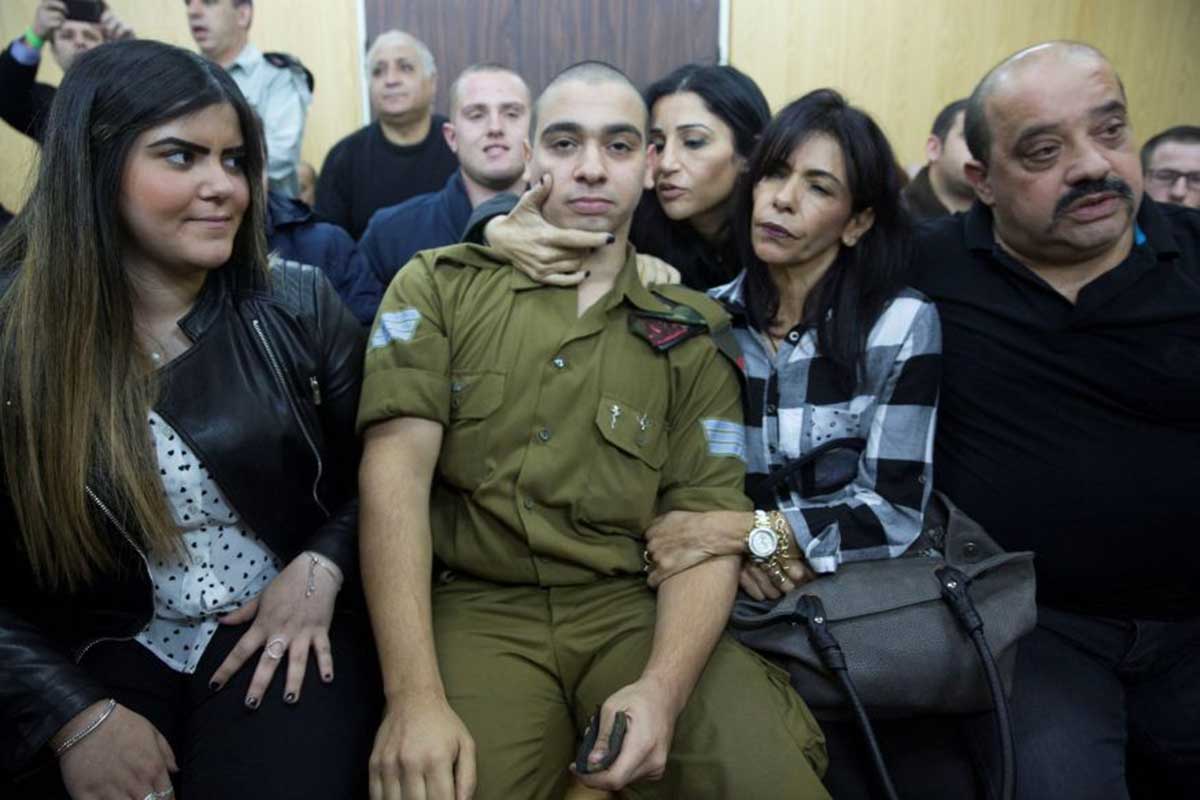Israeli soldier who shot dead wounded Palestinian attacker is under house arrest after three months in prison
Elor Azaria was discharged from detention at his military base to await review of his 18-month sentence by a military appeals court

Your support helps us to tell the story
From reproductive rights to climate change to Big Tech, The Independent is on the ground when the story is developing. Whether it's investigating the financials of Elon Musk's pro-Trump PAC or producing our latest documentary, 'The A Word', which shines a light on the American women fighting for reproductive rights, we know how important it is to parse out the facts from the messaging.
At such a critical moment in US history, we need reporters on the ground. Your donation allows us to keep sending journalists to speak to both sides of the story.
The Independent is trusted by Americans across the entire political spectrum. And unlike many other quality news outlets, we choose not to lock Americans out of our reporting and analysis with paywalls. We believe quality journalism should be available to everyone, paid for by those who can afford it.
Your support makes all the difference.An Israel Defence Forces (IDF) medic who was sentenced to 18 months in prison for killing a Palestinian assailant has been released to house arrest.
In March 2016, 20-year-old Elor Azaria shot Abdel Fattah al-Sharif in the head when he was wounded and immobilised on the ground, in the occupied West Bank city of Hebron. He was found guilty of manslaughter by a Tel Aviv military court in January 2017.
His sentence is being considered by a military court of appeals, and will be decided 30 July. Since his three-year military service ends on 20 July, Azaria has been allowed to travel to his parents home in Ramla and will remain there under house arrest until his appeal is heard.
While his lawyer argued for ‘half house arrest’, under which Azaria would be allowed to leave home during the day, the former sergeant – demoted to private – will only be allowed to leave the house to attend prayers on the Sabbath.
The landmark ruling against the young medic marked the first time a member of the IDF had been convicted of the charge in 12 years – but the case exposed a huge division in Israeli society over attitudes towards the actions of the IDF.
Since military service is compulsory, there is widespread sympathy for members of the army.
Azaria’s lawyers’ claims of self-defence were supported by 65 per cent of the Jewish Israeli public, an August 2016 survey by the Israel Democracy Institute found.
However, Palestinians and rights activists have widely criticised the punishment as not severe enough for the killing, which was recorded on a mobile phone.
The prosecution had sought a sentence of between three and five years, although manslaughter can carry a sentence of up to 20 years under Israeli law.
It is possible that Azaria could walk free after serving 12 months of his sentence, and there have been several high-profile calls for the young recruit to be pardoned altogether.
Sharif’s family had called for Azaria to receive a life sentence.
“The sentence he received is less than a Palestinian child gets for throwing stones,” his father Yasri told media earlier this year.
Join our commenting forum
Join thought-provoking conversations, follow other Independent readers and see their replies
Comments